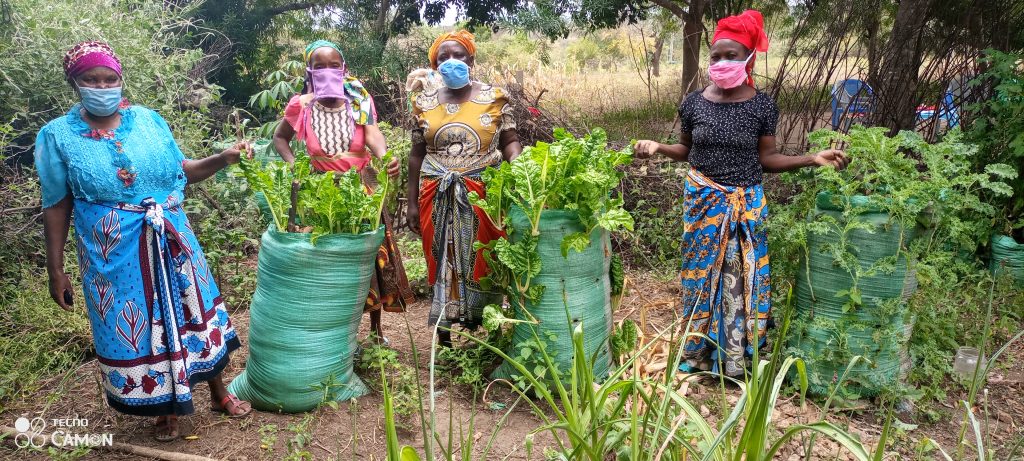Donor: CFGB/MCC
Project Area: Kitui South, Kitui Rural and Kitui Central Sub-counties.
Target Population: 1803 Smallholder Farming Households adversely affected by Covid-19.
Project Period: 1st October 2020 to 31st March 2021
Ultimate Goal: Protecting and strengthening livelihoods and food security for smallholder farming households affected by Covid-19 in Rural, Central and South Sub-Counties of Kitui
Key Outcomes:
- 100% Households achieved acceptable Food Consumption Score (FCS) and were able to adequately access the required food groups for a healthy living.
- 75% households adhering to Covid-19 guidelines and protocols on Hand Washing, Social Distancing and Face Mask.
Changes to Context: Rapid Gender Analysis
The pandemic brought about social, economic and cultural disruptions that undermined household food security in the target population implementing a Conservation Agriculture (CA) project.
A Rapid Gender Analysis conducted in the month of August 2020 revealed the following effects:
- Disruptions in market accessibility due to mobility restrictions especially affecting cereal aggregators and food commodity suppliers whose merchandise could not move from the rural areas to the urban areas and vice versa.
- Loss of employment due to closure of businesses in the formal and informal sector mainly in the urban areas triggering an exodus and resource straining in the rural areas. 80% of the sample population reported to have ar least one of their kins at home having lost their jobs due to the pandemic.
- Disruptions in household food consumption patterns with 35% of the sample size falling under stressed/emergence red line since they could not access a balanced 3-meals a day course. the pandemic also put pressure on household food reserves with 50% reporting to have reserves that cannot last the dry season until the next harvest (OND Season).
- Rise in teenage pregnancies occasioned by indefinite closure of schools without proper guidance and counselling especially on proper use of time and social behaviour.
- Increased household conflicts were reported mainly related to control of assets like chicken and goats whose sell would ease the economic effects.
Response Strategy and Approaches
- Covid-19 Prevention guidelines and protocols: The project disseminated the key messages on Hand washing, Social Distancing and Wearing a Mask all the time. Free reusable face masks were distributed to all the beneficiaries.
- Gender sensitive agricultural production and extension model focusing on:
- Kitchen gardens for improved nutrition and access to household low cost vegetables. Beneficiaries were guided on how to make chicken gardens utilizing local materials and waste water. Some of the local materials used are; gunny bags, used tyres, used buckets, jerrycans and bottles, used mosquito nets as shade nets. Vegetables raised were Kales, Amaranths, Onions, Tomatoes and spinach. The project provided seeds, planting,pests and disease scouting and control extension.
- Post Harvest Management: To store and preserve the exisiting grains in safe and acceptable conditions for human consumption and free from pests and diseases, Hermetic bags were promoted. Farmers were linked to Hermitic bag (PICs and Agro-Z bags brands) stockists and sellers.
- Gender Equality and Women Empowerment Integration:
- Men and women were encouraged to embrace shared roles and responsibilities.
- Table Banking was strengthened to build on household coping mechanisms and resilience. Money saved from the purchase of vegetables was ploughed back into table banking.
- Guidance on using communal and church-based conflict resolution mechanism rather than aggravated attack.

